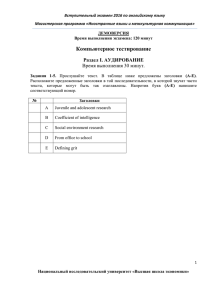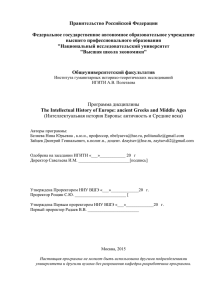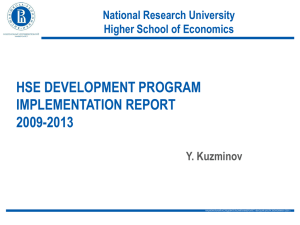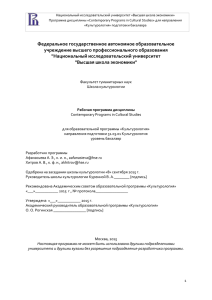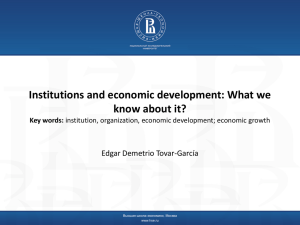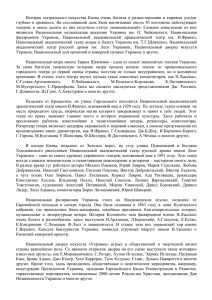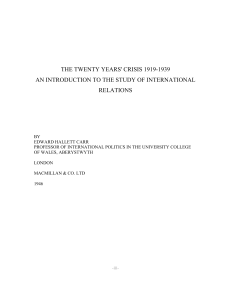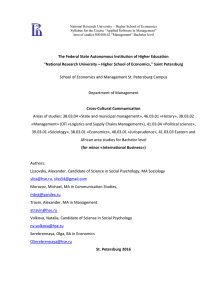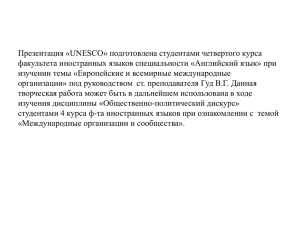Задания - Олимпиады и конкурсы Высшей школы экономики
advertisement
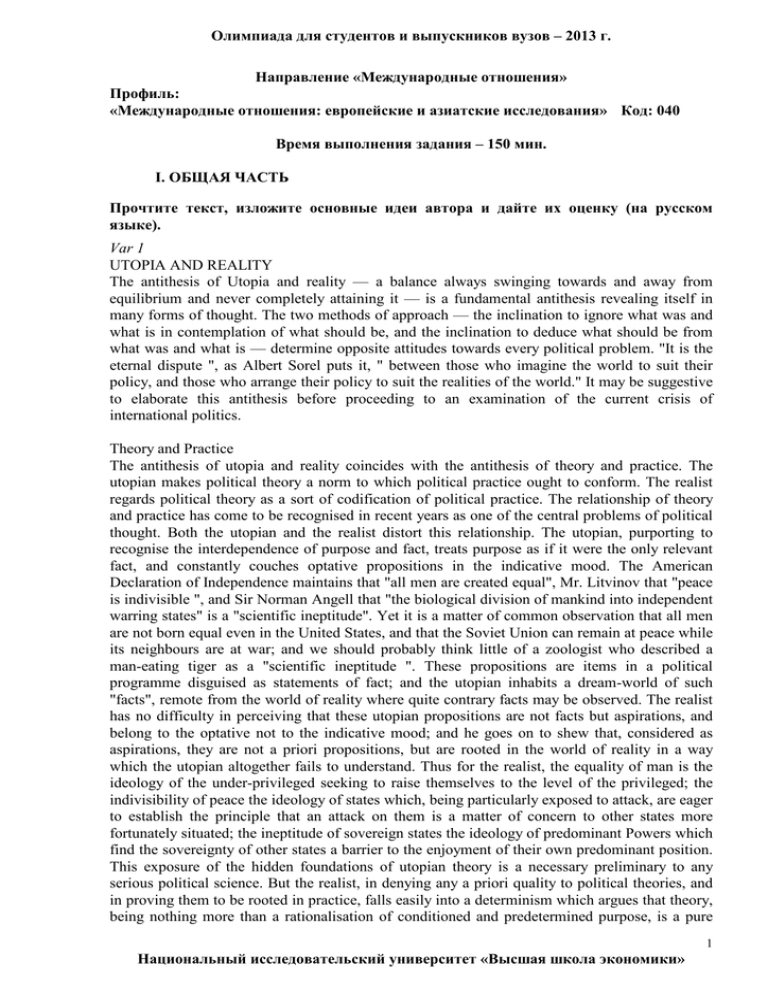
Олимпиада для студентов и выпускников вузов – 2013 г. Направление «Международные отношения» Профиль: «Международные отношения: европейские и азиатские исследования» Код: 040 Время выполнения задания – 150 мин. I. ОБЩАЯ ЧАСТЬ Прочтите текст, изложите основные идеи автора и дайте их оценку (на русском языке). Var 1 UTOPIA AND REALITY The antithesis of Utopia and reality — a balance always swinging towards and away from equilibrium and never completely attaining it — is a fundamental antithesis revealing itself in many forms of thought. The two methods of approach — the inclination to ignore what was and what is in contemplation of what should be, and the inclination to deduce what should be from what was and what is — determine opposite attitudes towards every political problem. "It is the eternal dispute ", as Albert Sorel puts it, " between those who imagine the world to suit their policy, and those who arrange their policy to suit the realities of the world." It may be suggestive to elaborate this antithesis before proceeding to an examination of the current crisis of international politics. Theory and Practice The antithesis of utopia and reality coincides with the antithesis of theory and practice. The utopian makes political theory a norm to which political practice ought to conform. The realist regards political theory as a sort of codification of political practice. The relationship of theory and practice has come to be recognised in recent years as one of the central problems of political thought. Both the utopian and the realist distort this relationship. The utopian, purporting to recognise the interdependence of purpose and fact, treats purpose as if it were the only relevant fact, and constantly couches optative propositions in the indicative mood. The American Declaration of Independence maintains that "all men are created equal", Mr. Litvinov that "peace is indivisible ", and Sir Norman Angell that "the biological division of mankind into independent warring states" is a "scientific ineptitude". Yet it is a matter of common observation that all men are not born equal even in the United States, and that the Soviet Union can remain at peace while its neighbours are at war; and we should probably think little of a zoologist who described a man-eating tiger as a "scientific ineptitude ". These propositions are items in a political programme disguised as statements of fact; and the utopian inhabits a dream-world of such "facts", remote from the world of reality where quite contrary facts may be observed. The realist has no difficulty in perceiving that these utopian propositions are not facts but aspirations, and belong to the optative not to the indicative mood; and he goes on to shew that, considered as aspirations, they are not a priori propositions, but are rooted in the world of reality in a way which the utopian altogether fails to understand. Thus for the realist, the equality of man is the ideology of the under-privileged seeking to raise themselves to the level of the privileged; the indivisibility of peace the ideology of states which, being particularly exposed to attack, are eager to establish the principle that an attack on them is a matter of concern to other states more fortunately situated; the ineptitude of sovereign states the ideology of predominant Powers which find the sovereignty of other states a barrier to the enjoyment of their own predominant position. This exposure of the hidden foundations of utopian theory is a necessary preliminary to any serious political science. But the realist, in denying any a priori quality to political theories, and in proving them to be rooted in practice, falls easily into a determinism which argues that theory, being nothing more than a rationalisation of conditioned and predetermined purpose, is a pure Национальный исследовательский университет «Высшая школа экономики» 1 Олимпиада для студентов и выпускников вузов – 2013 г. excrescence and impotent to alter the course of events. While therefore the utopian treats purpose as the sole ultimate fact, the realist runs the risk of treating purpose merely as the mechanical product of other facts. If we recognise that this mechanisation of human will and human aspiration is untenable and intolerable, then we must recognise that theory, as it develops out of practice and develops into practice, plays its own transforming role in the process. The political process does not consist, as the realist believes, purely in a succession of phenomena governed by mechanical laws of causation; nor does it consist, as the Utopian believes, purely in the application to practice of certain theoretical truths evolved out of their inner consciousness by wise and far-seeing people. Political science must be based on a recognition of the interdependence of theory and practice, which can be attained only through a combination of Utopia and reality. II. СПЕЦИАЛЬНАЯ ЧАСТЬ Выберите и выполните только один из блоков заданий специальной части. Блок 1. Европейские исследования Дайте развернутые ответы. 1. Формирование критической теории западноевропейской политической философии на примерах К. Поппера и Г. Маркузо. 2. Политическая биография Ж. Делора. Блок 2. Азиатские исследования Дайте развернутые ответы. 1. Концепция «ахимса» в международные аспекты. индийских религиозно-политических учениях и ее 2. Политическая биография Ху Яобана и первые попытки политических реформ в КНР. Национальный исследовательский университет «Высшая школа экономики» 2 Олимпиада для студентов и выпускников вузов – 2013 г. Национальный исследовательский университет «Высшая школа экономики» 3
